Can Alcoholics Ever Drink Again?
Is abstinence the only option, or can a former alcoholic drink after treatment? According to Psychology Today, abstinence is not the only option and research indicates that moderate drinking can be possible for people who used to abuse alcohol. But is this answer just hype for people who want to drink again, or is there truth to it?
The Goal of Alcohol Abuse Treatment
Ask any substance abuse counselor about the goal of alcohol treatment, and they will tell you that setting goals is critical. People in general need motivation to achieve the things they want to do. Think about it; you are more likely to do something when you know you will gain something. In some ways, we all live on a reward system because rewards motivate us to do more. Substance abuse treatment for alcoholics is no exception. It is important for participants to feel like they are accomplishing something; otherwise, what is the point in progressing?
The goal of drug addiction treatment is to help a person stop using, stay drug-free, and become productive. The goal of abstinence is similar. It involves a person stopping the use of alcohol, staying alcohol-free, and thus becoming a productive individual again. The goal of abstinence versus controlled drinking is a hotly debated topic. Some believe that forever abstaining from alcohol is unrealistic. They feel controlled drinking is a more attainable goal. In contrast, others believe abstinence is the only viable option because drinking in moderation is too dangerous and could cause a serious relapse.
The goal of controlled drinking is to help those who refuse abstinence to control their alcohol consumption. But this goal is not for everyone. Substance abuse experts agree that controlled drinking is only feasible for those with less severe alcohol problems. In other words, both goals—abstinence and controlled drinking—are viable, but they are not for everyone. This begs the question…
Who Can Drink Again?
Alcohol addiction is likened to a disease because of the physical and psychological impact it has on the drinker. Think about the common cold. No one likes to get it because, unlike the flu, there isn’t anything you can take for it. A cold has to run its viral course while you do what you can to make the symptoms bearable and that is never fun. Alcoholism is similar in that the symptoms can be treated, but the condition itself takes time to remedy. And the amount of time required, that varies per person.
According to LiveScience.com, controlled drinking has emerged as an accepted treatment option for people who see abstinence as too daunting. AA has been the go-to step program used to treat alcoholics for generations, but it is not for everyone. LiveScience.com reports that AA is only about 20% effective and should be seen as part of a grouping of methods that assist alcoholics in meeting their goals. Moderation is one of those methods, and it can work. But experts warn that it is not for everyone.
The idea of controlled drinking goes against the core belief of AA, which is that all alcoholics are in denial about their ability to control their drinking. For some, there is no control, and they are severe alcoholics. For others, they can see the problem and have the ability to assert some amount of control. But in order for controlled drinking to be possible for recovering or recovered alcoholics, control must be ample. LiveScience.com offers this nugget of intel:
“Brain imaging studies have revealed that heavy drinkers…have damaged the part of the brain that can help control a drinking habit, which makes the [goal] of moderation [or controlled drinking] not just a matter of strong will but rather a physical impossibility.”
In other words, the extent of a person’s addiction can directly impact whether an alcoholic can ever drink again. Mild to moderate alcoholics might have a chance to drink socially and not relapse, but the risk is undeniable. Substances like alcohol change brain chemistry, and those changes—often permeant—forever impact risk factor.
To Drink or Not To Drink Again
The National Epidemiologic Survey on Alcohol and Related Conditions from 2001 to 2002 concluded that abstinence and moderation are equally effective treatment options for alcoholics. The survey included 43,000 alcoholics. 36% were in recovery, and of them, 18.2% were abstainers while 17.7% were controlled drinkers.
The question is whether drinking during or post-recovery is worth the risk. What kind of an alcoholic are (or were) you? You must honestly evaluate the control alcoholism had and whether attempting to assert control by becoming a moderate drinker is safe. Abstinence may be a challenge, but in some cases, it is safer than the pursuit of occasional social drinking.
Goals are good. They help advance treatment for alcohol abuse and addiction. But they must be realistic. Controlled drinking might sound ideal, but it can only be a worthwhile goal if it is attainable. For some, moderate drinking is not an option. You might be one of those people—there’s always that risk. It is up to you to be honest with yourself, listen to the advice of the professionals working with you, and make an educated decision.
Abstinence vs. Controlled Drinking
Abstaining from alcohol, that’s tough. Controlled drinking might sound like the easier option, but it just might be even more of a challenge than abstinence. The answer hinges on your addiction.
Consult with your doctor and your counselor before deciding on a goal during and after recovery. When you set a goal, don’t keep it to yourself. Tell your family. Tell your friends. Tell your support group. The more positive support you can find, the more likely you will be to meet your goal.
If you are recovering from severe alcoholism, abstinence may be the only option. Don’t see this as a negative because even people who choose to try drinking in moderation find that abstaining is safer. Both goals can generate positive results, and you can beat alcohol addiction now and forever.

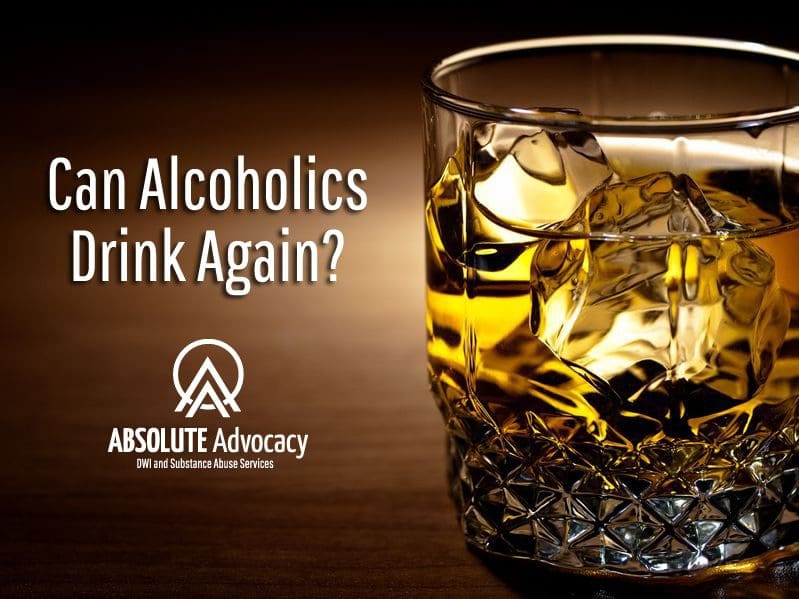
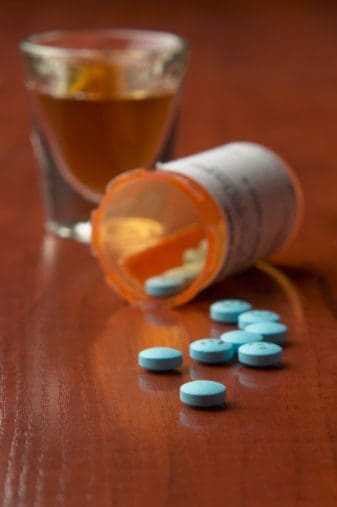

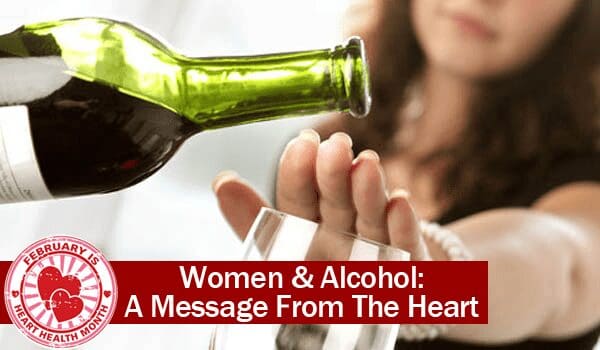

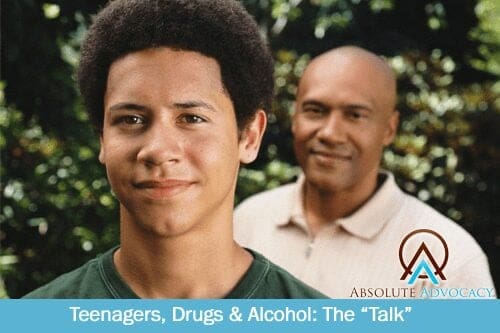
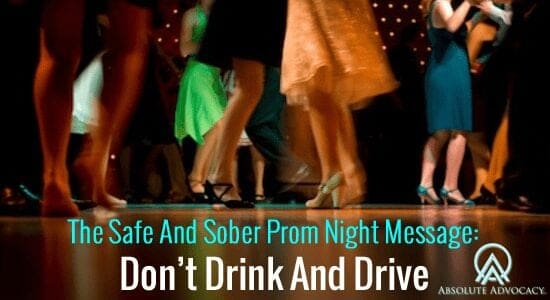
I only drank heavily to help with my anxiety. I sought out help. Now that I no longer have anxiety, I don’t feel the need to chase a buzz. Is it possible for me to have a couple of beers? I feel I can since I was self medicating. My spouse is not so sure. As I said, the root of my drinking was the anxiety. Which since, has completely vanished. Is it at all realistic for me to have a couple of drinks occasionally?
Sonja, thanks for your comment. That’s a really difficult question to answer. The fact that you’ve landed on this page and took the time to comment means that you’re going through some internal deliberation. Your spouse is obviously very worried and concerned. If you haven’t drank in a while then I don’t see a reason why you should break that streak.
When you get a moment check out this page: https://www.absoluteadvocacy.org/do-i-have-a-problem-with-alcohol/
It will provide some more guidance.
Definitely reach out to a counselor before making a decision to start drinking again.
Sonja, I did the exact same thing as far as self medicating for anxiety. I also no longer suffer from anxiety, however I think a lot of my anxiety was triggered by alcohol. It only makes sense that my anxiety went away with cutting out alcohol. There are times that I would
Love to have a couple of cocktails but I’m so afraid it could
Possibly trigger anxiety which would lead to the possibility of self
Medicating again. This is all just opinion from personal
Experience
But I thought I would share just for thought if nothing else. Good
Luck with everything!!
Dustin..I really appreciate your personal perspective. I’m sure its helpful to other readers.
I have been dry for 9 years. I used to drink because of severe anxiety which i do not have now, but i dare not have a drink in case it triggers the anxiety again.
Christmas and New year are really bad for me as i live in sheltered accommodation with other people who love to drink anytime!
Dennis if you are an alcoholic I would ask you to please look deep within yourself before ever drinking again. Dry and sober are two different things all together. An alcoholic realizes they have a problom and to drink is to eventually die. I have been to well over a hundred funerals in my sobriety and every one of the people who thought it would be ok to drink again died and it is extremely sad to see people who had a real chance at living a happy life. Is sobriety easy, not even close, but it is certainly worthwhile. I beleive whatever form of sobrtity works for a person is what really counts. For me it was and still is AA. Others have found it with church, counseling, rehab. Each and every time I am with family or a bbq, get togethers and I see people drinking all around me I remember the horror show I was when drinking. When asked if I would like a drink, I say sure, diet coke please.
I always say “Double Jack and Diet Coke please, hold the Jack!”